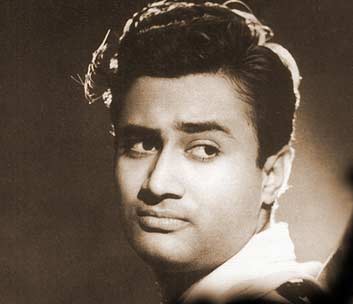|

It says much for the enduring popularity of the man that the release of his autobiography was greeted with such interest. Book signings from New York to Chennai thronged with fans wanting a glimpse of the man, a smile, an autograph. Romancing with Life is quintessential Dev Anand – unmistakably enthusiastic, brimming over with optimism, and outspokenly frank. Dev Anand, an English Honours graduate from the famed Government College in Lahore, was considered one of ‘The Big Three’ in Hindi cinema, the other two being Raj Kapoor and Dilip Kumar. The autobiography is full of verbal flourishes, sometimes using up whole reams of print where two sentences would have done the trick. However, that is also part of his charm, and probably evidence of the fact that he wrote the book, instead of having it ghost-written. In his preface, he answers charges of narcissism. He is serious when he says that ‘To honour that image (that of a deity to millions of his fans) I must project myself to be the best I can be in both my personal and professional life.’ The narrative is racy enough to keep your interest going, the beginning pages flashing back and forth between the train journey that is taking him towards the future he is dreaming of and the loving family he has left behind. There is no glorification of his earlier struggles, but neither is there resentment. The greatest tragedy of his struggling days? Having to sell his precious stamp collection in order to stave off hunger. The story of his journey from his first film Hum Ek Hain to Dev Anand the star is filled with affectionate reminiscences of the many people who had a hand in his success – his idol, Ashok Kumar who gave him his first big break in Ziddi; Guru Dutt, a friend of his struggling days, who helmed many of his successes, Chetan Anand, his elder brother whom he looked up to, and who later became his partner in Navketan films, Vijay Anand, his younger brother, who directed some of his big films like Jewel Thief, Guide and Johnny Mera Naam, the father-son duo of SD Burman and RD Burman who gave Navketan their most memorable tunes and Kishore Kumar, who was Dev Anand’s voice. Films are a passion with him and the best part of the book are those that deal with his movies. There are some interesting vignettes about his films, about how they shot Taxi Driver in 35 days on a shoestring budget, in a last ditch effort to keep the fledgling Navketan afloat, how Kala Bazaar was shot at the original premiere of Mother India, how Major Verma in Hum Dono was patterned on a major he had met in the British Army cantonment in Poona. He talks about his fallout with Chetan Anand with his usual forthrightness. Yet, he names no names when he writes about some of the notorious scandals of his times. There is no mention of Guru Dutt’s passion for Waheeda Rehman, or Chetan Anand moving in with Priya Rajvansh. Apart from his many encounters of the sexual kind, there are no salacious details about any of his contemporaries. Dev Anand would not be Dev Anand, if there were not any mention of women. The book is heavily peppered with his flirtations and sexual affairs, some of which are quite graphically described. Of them all, his description of his fabled love story with Suraiyya is probably the most romantic. One gets the feeling that the affairs that followed, while it allowed him to keep his ‘romantic hero’ image alive, did not mean much. Zeenat Aman was to prove an exception. As he himself admits, he was ready to confess his love to her, only to find that she had moved on – to Raj Kapoor. His commitment to movies comes through in every page, even if he hasn’t had a box-office success or critical acclaim in the past three decades. Is it his incurable optimism or his absolute capacity for self-delusion which makes him claim that his films were ‘ahead of their times’, as in the case of Awwal Number. Or, that Love at Times Square failed because the local distributors were too stingy to delve into their pockets for a million-dollar promotion. It is however true, as he says, that he “…still had the passion and conviction to make movies based on his own novel ideas, which were never borrowed, plagiarised or stolen.” It must be that indomitable spirit that refuses to accept that he is at the fag end of his career. At the end of his autobiography, the flamboyant star announces his next venture, an international one, no less. The book meanders towards the end, much like his present movies do, but what you come away with is a sense of his unbeatable optimism, his almost child-like joy in living life to the fullest.
|